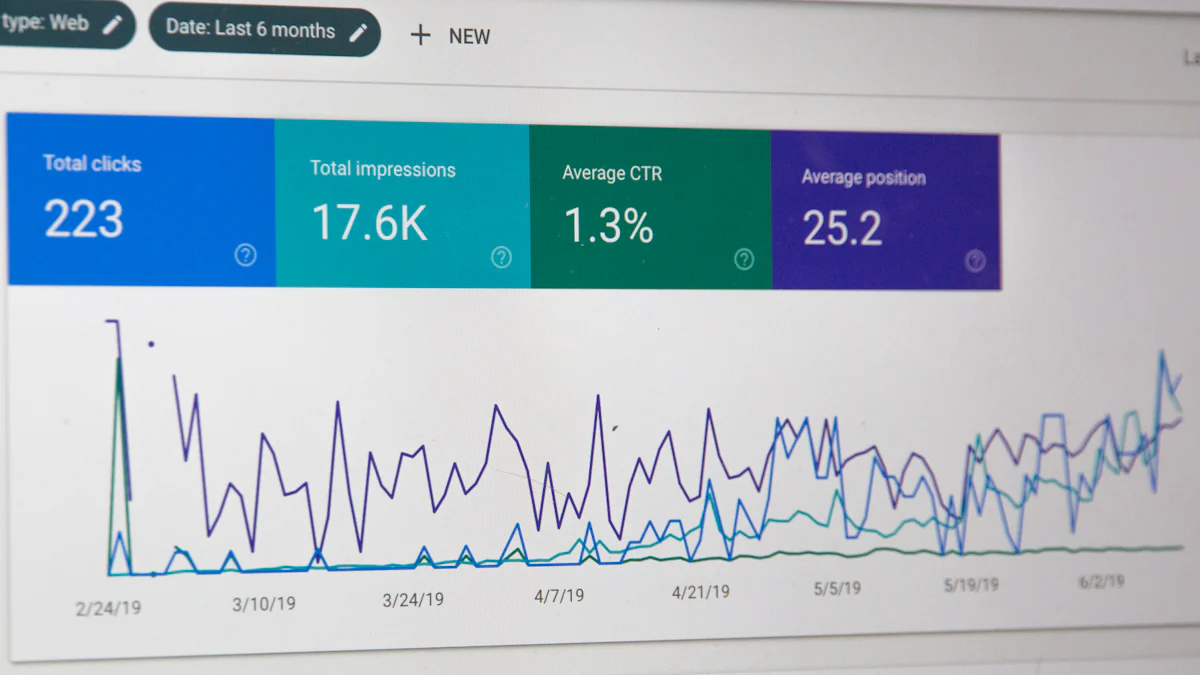Understanding the Differences Between Customer Success and Customer Experience

Deciphering Customer Success
Customer success and customer experience play integral roles in shaping the landscape of modern business strategies. These two components are instrumental in influencing client satisfaction and fostering long-term customer loyalty. While customer experience encompasses the overall journey and perception of consumers interacting with a brand, customer success specifically focuses on ensuring that clients achieve their desired outcomes through the products or services provided.
In essence, customer success is centered around proactively guiding and supporting clients to derive maximum value from their purchases, ultimately leading to their satisfaction and continued loyalty. On the other hand, customer experience entails the holistic interaction between consumers and a brand, encompassing every touchpoint across various channels.
Understanding the distinctions between these concepts is fundamental for businesses aiming to optimize client satisfaction and drive sustainable growth. By aligning strategies for both customer success and experience, organizations can create seamless, personalized journeys for their clientele while also ensuring that customers achieve their desired outcomes. This alignment is crucial for fostering enduring relationships with customers and enhancing overall business performance.
Customer Success vs. Customer Experience: While customer success focuses on guiding clients towards achieving value from products or services, customer experience encompasses the entire spectrum of interactions between consumers and a brand.
The NPS Prism
Understanding NPS
The Net Promoter Score (NPS) serves as a pivotal customer satisfaction metric and loyalty measurement tool utilized by businesses across various industries. This methodology involves categorizing customers into three distinct groups: promoters, passives, or detractors. Promoters are enthusiastic advocates of the brand, while passives are satisfied but unenthusiastic customers. Detractors, on the other hand, are unsatisfied customers who can potentially damage the brand's reputation through negative word-of-mouth.
NPS Implementation
Implementing NPS surveys provides valuable insights into customer sentiment and brand advocacy. By collecting and analyzing NPS data, businesses can effectively gauge customer satisfaction levels and identify areas for improvement in both customer experience and success strategies. This proactive approach enables organizations to address concerns promptly and enhance overall customer satisfaction.
AI in Market Research
Role of AI
AI technologies, including custom ChatGPT, are at the forefront of revolutionizing market research. These advanced tools enable personalized and efficient customer interactions, thereby enhancing the overall customer experience. By leveraging AI-driven analytics, businesses can gain valuable insights into customer behavior and preferences, which in turn play a pivotal role in refining and optimizing customer experience strategies.
AI's role in market research extends beyond traditional methodologies, offering scalable solutions that provide a deeper understanding of customer sentiments. The integration of AI technologies facilitates predictive analysis, empowering businesses to proactively design and implement customer success initiatives tailored to individual needs. This proactive approach not only enhances customer satisfaction but also contributes significantly to long-term loyalty and brand advocacy.
AI Implementation
The implementation of AI in market research brings forth a new era of data-driven decision-making. Through the utilization of machine learning for customer research, businesses can derive actionable insights that drive strategic decision-making processes. These insights enable organizations to optimize their products and services based on an in-depth understanding of customer preferences and expectations.
Moreover, AI tools offer scalable solutions for understanding customer sentiments across various touchpoints. By harnessing the power of artificial intelligence in market analysis, businesses can effectively identify patterns and trends within consumer data, thus optimizing their overall approach to delivering exceptional customer experiences.
Ethical AI Considerations
Ethical Implications
Incorporating AI into market research raises significant ethical considerations that encompass privacy, data security, and the potential for biases in customer profiling. As AI algorithms rely on extensive datasets for analysis, there is a critical need to ensure the protection of sensitive customer information and the prevention of unauthorized access. Moreover, the inherent risk of bias in AI-driven customer profiling demands careful scrutiny to avoid perpetuating discriminatory practices.
Maintaining transparency and accountability is paramount in mitigating these ethical risks associated with AI's influence on customer success and experience. By upholding ethical standards in data collection, analysis, and utilization, businesses can instill trust and confidence among their clientele while safeguarding against any potential misuse of customer data.
Regulatory Compliance
The integration of AI in market research necessitates strict adherence to data protection regulations and ethical guidelines to uphold the integrity of customer relationships. Compliance with established regulations not only fosters trust but also demonstrates a commitment to responsible and transparent business practices. It is imperative for organizations to prioritize regulatory compliance as a foundational element in their approach to leveraging AI technologies for market research.
Establishing ethical frameworks for AI implementation ensures that businesses engage in responsible and sustainable utilization of AI within market research endeavors. By aligning with regulatory requirements and ethical standards, companies can cultivate an environment where customers' privacy is respected, data usage is fair, and the overall impact on individuals is conscientiously considered.
Responsible AI Usage: "Ethical implications surrounding AI implementation demand a proactive approach towards maintaining transparency, protecting privacy, and addressing potential biases."
Significance of Understanding
Differentiating Customer Success and Experience
Distinguishing between customer success and customer experience is pivotal for businesses seeking to develop targeted strategies that enhance client satisfaction. While customer success revolves around ensuring that clients achieve their desired outcomes through the products or services provided, customer experience encompasses the entirety of interactions between consumers and a brand. By understanding these distinctions, organizations can align their initiatives for both customer success and experience, thereby creating seamless and personalized journeys for their clientele.
Impact on Business Performance
A comprehensive comprehension of customer success versus customer experience significantly influences various aspects of business performance. This understanding directly impacts customer retention, brand loyalty, and overall business growth. By strategically addressing both customer success and experience, businesses can gain a competitive advantage in the market while fostering long-term sustainability. It is evident that the harmonious integration of these two elements plays a crucial role in shaping the trajectory of a company's success within the market landscape.
Revolutionizing Market Research
Impact of AI in Market Research
AI-driven market research has revolutionized the traditional approaches to data analysis and customer insights. By harnessing the power of artificial intelligence, businesses can now delve into real-time data analytics, predictive modeling, and personalized customer interactions. This transformative impact extends to optimizing market research methodologies, thereby enhancing the efficiency and effectiveness of customer success and experience strategies.
AI's Influence: "The integration of AI technologies has redefined market research by enabling real-time data analysis, predictive modeling, and personalized customer interactions."
Future Trends in Market Research
The future landscape of market research is intricately intertwined with the advancements in artificial intelligence. As AI continues to evolve, it offers deeper insights into customer behaviors and market dynamics. The trajectory of AI-powered market research is paving the way for agile and adaptive customer success and experience frameworks, driving continuous innovation and value creation. Embracing these future trends will be pivotal for businesses aiming to stay ahead in understanding consumer preferences and market trends.
Balancing Innovation and Responsibility
Ethical Innovation in Customer Success
Innovative customer success strategies must prioritize ethical considerations, placing a significant emphasis on safeguarding customer privacy, obtaining consent, and ensuring fairness in data usage. By integrating ethical principles into the development of customer success initiatives, businesses can build trust and credibility, reinforcing the foundation for long-term relationships with their clientele.
Balancing innovation and responsibility fosters trust and credibility, reinforcing the long-term success of customer relationships. It is essential to approach innovation in customer success with a keen awareness of ethical implications, ensuring that customers' rights and privacy are respected throughout their interactions with the brand.
Sustainable AI Adoption
Adopting AI technologies responsibly involves establishing ethical frameworks, accountability, and transparency within customer success initiatives. As businesses leverage AI to enhance customer experiences, it is crucial to uphold ethical standards to drive positive interactions while maintaining sustainable business growth.
Sustainable AI adoption aligns with ethical practices by prioritizing transparency and accountability in the utilization of artificial intelligence. This approach ensures that AI-driven customer interactions are conducted responsibly and ethically, contributing to enduring relationships built on trust and integrity.
Ethical Considerations: "Balancing innovation with ethical considerations in customer success is pivotal for fostering enduring relationships based on trust and credibility."
Grasping Customer Experience
Understanding the intricacies of customer success and customer experience is crucial for nurturing enduring relationships with clients and propelling business growth. By discerning the subtle disparities between these two components, organizations can tailor their strategies to meet the diverse needs of their clientele, thereby fostering satisfaction and loyalty.
In essence, while client success revolves around guiding customers towards achieving value from products or services, consumer experience encompasses the entirety of interactions between individuals and a brand. This comprehensive comprehension empowers businesses to create seamless, personalized journeys for their clientele while also ensuring that customers achieve their desired outcomes.
Balancing Act: "The harmonious integration of customer success and experience is pivotal for driving sustainable business growth and fostering enduring client relationships."
See Also
How ChatGPT Can Revolutionize Customer Experience with AI Impact
Business Success Through Customer Experience Automation Impact
Unraveling the Puzzle of AI Models Comprehending Jokes and Humor
Uncovering the Benefits of SleekFlow and ChatGPT for CRM Customer Support

